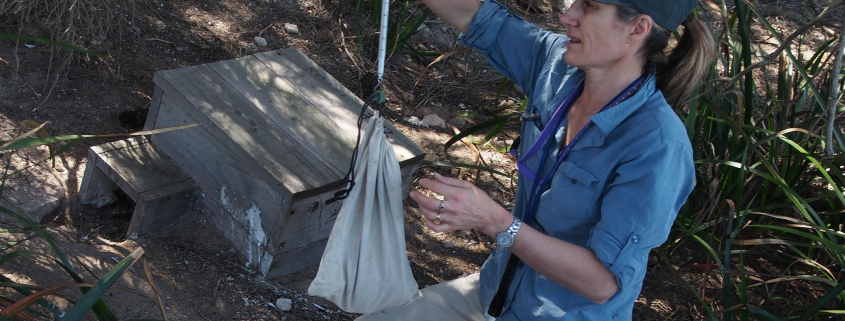Penguin ‘poop study’ to help unlock colony’s diet
Researchers from The University of Western Australia and Murdoch University are analysing DNA from the excrement of little penguins in Cockburn Sound to find out what, other than fish, they are eating and whether it is affecting their breeding.
Penguin researcher Dr Belinda Cannell, from UWA, said analysing the animals’ diet in greater detail would provide an insight into their breeding and how it related to the availability of their primary diet, which is fish.
Little penguins in Cockburn Sound (their northern most range in Western Australia) primarily eat anchovies, pilchards, scaly mackerel and sandy sprat.
Penguins are known to also feed on crustaceans, cephalopods and even jellyfish.
“If it’s a poor year and there are not a lot of fish around, the little penguins may be feeding more on other things such as jellyfish,” Dr Cannell said.
This could then have an impact on their ability to produce and raise young.
“This other food may not get them into the condition where they can breed and feed their young,” Dr Cannell said.
“It may be that the chicks don’t fatten up as quickly.”
She said diet made up one element of the project, which is part of the WAMSI Westport Marine Science Program.
Another methodology being used to determine diet composition is the analysis of stable isotopes of carbon, nitrogen and sulphur from the down of little penguin chicks and feathers from adults.
“Stable isotopes of carbon reflect primary production sources and is more enriched in inshore, seagrass dominated areas, compared to offshore food webs,” Dr Cannell said.
“The stable isotope of nitrogen increases up the food chain and can also increase between size classes of the same prey species.”
“Stable isotopes of sulphur can be useful to distinguish between offshore and inshore components in food webs and can also indicate if producers are using sulphur from seawater, which is more enriched, or from sediments which are less enriched.
“This gives us a better idea of the whole diet of these birds.”
Dr Cannell said stable isotopes assist with establishing diet composition.
“I presume little penguins are eating jellyfish, but we haven’t had stable isotopes for jellyfish until now.”
The Western Australian Museum provided samples to assist with the research.

